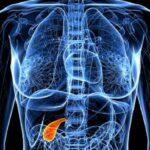Angel Soft Toilet Paper, 16 Mega Rolls = 64 Regular Rolls, Soft and Strong Toilet Tissue
3% OffGastroparesis is a gastrointestinal disorder characterized by delayed gastric emptying. It occurs when the muscles of the stomach fail to function properly, leading to a slowdown in the movement of food from the stomach to the small intestine. This condition can result in various symptoms such as nausea, vomiting, bloating, and abdominal pain. While the primary cause of gastroparesis remains unclear, researchers have started to explore the association between gastroparesis and small intestinal bacterial overgrowth (SIBO). In this article, we will delve into the relationship between these two conditions, their symptoms, diagnosis, and potential treatment options.
Introduction
Gastroparesis is a disorder that affects the normal functioning of the stomach muscles, causing delayed gastric emptying. This condition can lead to various complications and significantly impact a person’s quality of life. Researchers have discovered a potential association between gastroparesis and small intestinal bacterial overgrowth (SIBO). SIBO occurs when there is an abnormal increase in the number of bacteria in the small intestine, leading to an imbalance in the gut microbiota.
Understanding Gastroparesis
Gastroparesis is a chronic condition that affects the normal motility of the stomach. It can be caused by various factors, including diabetes, neurological disorders, viral infections, and certain medications. The symptoms of gastroparesis may vary from mild to severe and can significantly disrupt the digestion process.
Small Intestinal Bacterial Overgrowth (SIBO)
SIBO is a condition characterized by the presence of excessive bacteria in the small intestine. Normally, the small intestine contains a limited number of bacteria, but in SIBO, these bacteria multiply and overpopulate the small intestine. This overgrowth can interfere with the absorption of nutrients and cause gastrointestinal symptoms.
The Link between Gastroparesis and SIBO
Recent studies have suggested a potential link between gastroparesis and SIBO. The delayed gastric emptying in gastroparesis can create an environment in which bacteria thrive and multiply in the small intestine. The stagnant food in the stomach provides an ideal breeding ground for bacteria, leading to SIBO. Additionally, the disruption in gut motility caused by gastroparesis can contribute to the development of SIBO.
Symptoms of Small Intestinal Bacterial Overgrowth in Gastroparesis
The symptoms of SIBO in individuals with gastroparesis can overlap with the symptoms of gastroparesis itself. These may include:
- Abdominal bloating
- Abdominal pain or discomfort
- Nausea and vomiting
- Diarrhea or constipation
- Unintentional weight loss
- Nutritional deficiencies
Diagnosis of Small Intestinal Bacterial Overgrowth in Gastroparesis
The diagnosis of Small intestinal bacterial overgrowth in gastroparesis patients can be challenging as the symptoms can be similar to those of gastroparesis alone. However, healthcare professionals may use various diagnostic tests to confirm the presence of SIBO. These tests may include:
- Breath tests
- Blood tests
- Stool analysis
- Endoscopy
Treatment Options for Small Intestinal Bacterial Overgrowth in Gastroparesis
The management of SIBO in individuals with gastroparesis typically involves a multidisciplinary approach. Treatment options may include:
1. Lifestyle Modifications
Making certain lifestyle changes can help alleviate symptoms and manage both gastroparesis and SIBO. These changes may include:
- Eating smaller, more frequent meals
- Chewing food thoroughly
- Avoiding lying down after meals
- Managing stress levels
2. Dietary Changes
Adopting a specific diet can play a crucial role in managing SIBO in gastroparesis. Some dietary recommendations may include:
- Limiting the intake of fermentable carbohydrates
- Avoiding certain trigger foods
- Increasing fiber intake
- Considering a low FODMAP diet
3. Medications
Certain medications may be prescribed to manage symptoms and improve gut motility. These may include:
- Antiemetics to control nausea and vomiting
- Proton pump inhibitors to reduce stomach acid production
- Prokinetic agents to enhance gastrointestinal motility
4. Antibiotics
In cases where SIBO is confirmed, a course of antibiotics may be prescribed. Antibiotics can help eliminate the excessive bacteria in the small intestine and restore the balance of gut microbiota.
5. Other Therapies
In addition to the above treatment options, healthcare professionals may recommend other therapies to manage symptoms and improve overall gastrointestinal function. These therapies may include:
- Acupuncture
- Herbal supplements
- Physical therapy
Conclusion
Gastroparesis and small intestinal bacterial overgrowth (SIBO) often coexist and can exacerbate each other’s symptoms. Understanding the link between these conditions is crucial for effective management. By adopting lifestyle modifications, making dietary changes, and considering appropriate medications and therapies, individuals with gastroparesis and SIBO can improve their quality of life and alleviate gastrointestinal symptoms.
FAQs
1. Can gastroparesis cause small intestinal bacterial overgrowth? Yes, delayed gastric emptying in gastroparesis can create an environment conducive to the development of small intestinal bacterial overgrowth (SIBO).
2. What are the common symptoms of SIBO in gastroparesis patients? The common symptoms of SIBO in gastroparesis patients include abdominal bloating, pain, nausea, vomiting, diarrhea or constipation, unintentional weight loss, and nutritional deficiencies.
3. How is SIBO diagnosed in individuals with gastroparesis? SIBO can be diagnosed through various tests such as breath tests, blood tests, stool analysis, and endoscopy.
Dr. Ahmed Raza, a renowned gastroenterologist with over 20 years of experience, is the dedicated founder of LifeWithNoGallbladder. With a passion for improving gallbladder health, Dr. Raza shares extensive insights, records, and guidance through his blog, providing individuals with the necessary information to make informed decisions.














